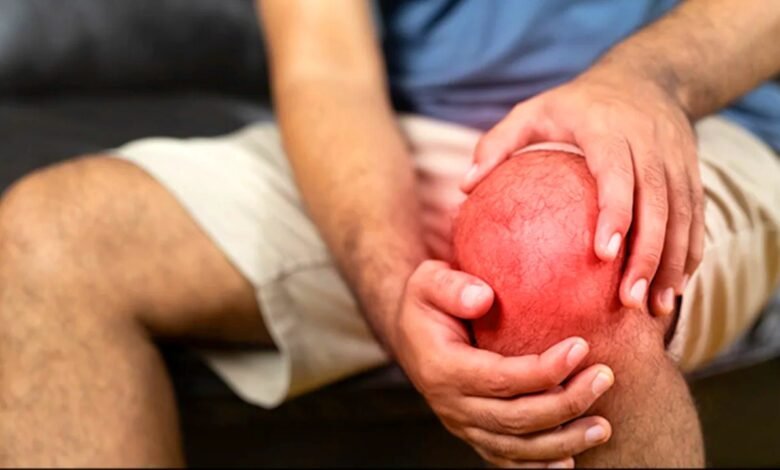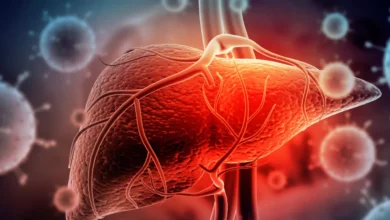Managing Arthritis and Rheumatology: Tips for a Pain-Free Life

Managing Arthritis and Rheumatology: Tips for a Pain-Free Life” – Discover expert strategies and practical tips to effectively manage arthritis and rheumatology conditions. Learn about the latest treatments, lifestyle modifications, exercises, and dietary considerations to alleviate pain and improve overall well-being. Take control of your health and embrace a pain-free life with this comprehensive guide. Implement these valuable insights today and regain control over your arthritis and rheumatology journey.
Living with arthritis and rheumatology conditions can be challenging, but with the right strategies and lifestyle modifications, you can effectively manage pain and improve your overall quality of life. Managing arthritis requires a multi-faceted approach, combining lifestyle modifications, medical treatments, and coping strategies. By implementing the right strategies, individuals with arthritis can significantly reduce pain, improve joint function, and enhance their overall well-being.
Read More: Natural Remedies for Rheumatology
Understanding Arthritis and Rheumatology
Arthritis refers to the inflammation of one or more joints, leading to pain, stiffness, and reduced mobility. Rheumatology, on the other hand, is the medical specialty that focuses on the diagnosis and treatment of arthritis and other rheumatic conditions. It is essential to understand the underlying causes and types of arthritis to effectively manage the condition.
Common Types of Arthritis
- Osteoarthritis: This is the most common form of arthritis, often associated with aging and wear-and-tear of the joints. It occurs when the protective cartilage that cushions the ends of bones wears down over time.
- Rheumatoid Arthritis: Rheumatoid arthritis is a chronic autoimmune disease that primarily affects the joints. The immune system mistakenly attacks the lining of the joints, leading to inflammation, swelling, and pain. It can also affect other organs and systems in the body.
- Psoriatic Arthritis: Psoriatic arthritis is a type of arthritis that occurs in individuals with psoriasis, a chronic skin condition characterized by red, scaly patches. It can cause joint pain, stiffness, and swelling, along with skin and nail changes.
Symptoms and Diagnosis of Arthritis and Rheumatology
Arthritis can manifest through various symptoms, and early diagnosis is crucial for timely intervention and treatment. The common symptoms of arthritis include:
- Joint Pain and Stiffness: Persistent joint pain, tenderness, and stiffness, especially in the morning or after periods of inactivity.
- Swelling and Inflammation: Joint swelling, redness, and warmth due to inflammation.
- Limited Range of Motion: Difficulty in moving a joint fully or experiencing a decreased range of motion.
To diagnose arthritis, healthcare professionals may perform a combination of physical examinations, medical history evaluations, and diagnostic tests. These tests may include X-rays, blood tests, joint fluid analysis, and imaging tests like MRI or CT scans.
Lifestyle Modifications for Arthritis Management
Making certain lifestyle modifications can significantly improve arthritis symptoms and enhance your overall well-being. Consider implementing the following strategies:
- Regular Exercise: Engaging in regular exercise can help strengthen the muscles surrounding the joints, improve joint flexibility, and reduce pain. Low-impact exercises such as swimming, cycling, walking, and yoga are particularly beneficial for arthritis patients.
- Healthy Diet: Consuming a balanced diet rich in fruits, vegetables, whole grains, lean proteins, and healthy fats can help reduce inflammation and maintain a healthy weight. Limiting processed foods, sugary beverages, and foods high in saturated fats can also contribute to better arthritis management.
- Weight Management: Maintaining a healthy weight is crucial for arthritis patients as excess weight puts additional stress on the joints, leading to increased pain and inflammation. Losing weight through a combination of healthy eating and regular exercise can significantly alleviate symptoms.
- Stress Reduction: High levels of stress can worsen arthritis symptoms. Managing stress through techniques such as deep breathing exercises, meditation, practicing mindfulness, and engaging in activities that bring joy and relaxation can be beneficial.
- Adequate Sleep: Getting enough sleep is essential for the body’s overall healing and recovery process. Aim for 7-9 hours of quality sleep each night. Creating a bedtime routine, maintaining a comfortable sleep environment, and practicing relaxation techniques can promote better sleep.
Medications and Treatment Options
Medical treatments can help control pain, reduce inflammation, and slow down the progression of arthritis. The choice of treatment depends on the type and severity of arthritis. Some common medications and treatment options include:
- Nonsteroidal Anti-Inflammatory Drugs (NSAIDs): Over-the-counter or prescription medications that help relieve pain and reduce inflammation. NSAIDs can provide temporary relief but should be used with caution due to potential side effects.
- Disease-Modifying Antirheumatic Drugs (DMARDs): These medications are commonly used to treat rheumatoid arthritis and other autoimmune types of arthritis. DMARDs work by suppressing the immune system and slowing down the progression of joint damage.
- Biologic Response Modifiers: Biologic medications are a newer class of drugs that specifically target components of the immune system involved in inflammatory arthritis. They can be highly effective in managing rheumatoid arthritis and other types of autoimmune arthritis.
- Physical Therapy: Physical therapy is an essential component of arthritis management. A physical therapist can design a customized exercise and treatment program to improve joint mobility, strengthen muscles, and reduce pain.
- Surgery: In severe cases where conservative treatments have failed, surgical interventions such as joint replacement or joint repair may be necessary to alleviate pain, improve mobility, and enhance the quality of life.
Assistive Devices and Adaptive Strategies
To assist with daily activities and minimize joint strain, consider utilizing the following devices and adaptive strategies:
- Braces and Splints: These devices provide support and stability to affected joints, reducing pain and preventing further damage.
- Canes, Crutches, and Walkers: Assistive devices such as canes, crutches, and walkers can aid in balance and weight-bearing, allowing individuals to move with reduced joint stress.
- Assistive Tools and Gadgets: Various tools and gadgets are available to make daily tasks easier for arthritis patients. Examples include jar openers, reachers, adaptive utensils, and ergonomic tools designed to minimize joint strain.
- Home Modifications: Making necessary adjustments in your living space can ensure better accessibility and safety. This may include installing handrails, grab bars, or ramps to facilitate movement and reduce the risk of falls.
Complementary and Alternative Therapies
In addition to medical treatments, some individuals find relief from arthritis symptoms through complementary and alternative therapies. These may include:
- Acupuncture: Acupuncture involves the insertion of fine needles at specific points on the body to stimulate the body’s natural healing response. It can help reduce pain, and inflammation, and improve overall well-being.
- Massage Therapy: Massage therapy can help alleviate muscle tension, reduce pain, and promote relaxation. Techniques such as Swedish massage, deep tissue massage, and trigger point therapy can be beneficial for arthritis patients.
- Herbal Supplements: Certain herbal supplements, such as turmeric and ginger, have anti-inflammatory properties and may provide relief from arthritis symptoms. However, it’s essential to consult with a healthcare professional before incorporating any supplements into your routine.
- Hot and Cold Therapy: Applying heat or cold to affected joints can help reduce inflammation, alleviate pain, and improve joint mobility. Hot packs, cold packs, warm baths, or paraffin wax baths are some commonly used methods for hot and cold therapy.
Coping with Arthritis and Rheumatology
Living with arthritis can be emotionally and physically challenging. However, there are various strategies that can help you cope effectively and improve your overall well-being:
- Education and Self-Management Programs: Attend educational programs and self-management workshops to learn about your condition, understand the best practices for arthritis management, and develop effective coping strategies.
- Supportive Relationships: Surround yourself with understanding and supportive individuals who can offer emotional and practical support. Joining support groups or connecting with others facing similar challenges can provide a sense of belonging and encouragement.
- Emotional Well-being: Taking care of your emotional well-being is crucial when managing arthritis. Engage in activities that bring you joy, practice relaxation techniques such as deep breathing, meditation, or mindfulness, and seek professional help if needed to address any emotional or mental health concerns.
Read More: How to Exercise Safely with Arthritis in 2023
Conclusion
Managing arthritis and rheumatology conditions requires a comprehensive approach that includes lifestyle modifications, medical treatments, and coping strategies. By adopting a healthy lifestyle, adhering to treatment plans, and seeking support, you can improve your quality of life and minimize the impact of arthritis on your daily activities.
FAQs
Q: Can arthritis be cured completely?
While there is no known cure for arthritis, various treatments can effectively manage symptoms and slow down disease progression.
Q: Are there any natural remedies for arthritis and rheumatology?
Some individuals find relief from arthritis symptoms through natural remedies such as herbal supplements, acupuncture, and hot/cold therapy. However, it’s important to consult with healthcare professionals before trying any alternative treatments.
Q: Is exercise beneficial for arthritis?
Yes, regular exercise is highly beneficial for arthritis as it helps improve joint flexibility, strength, and overall well-being. However, it’s important to choose low-impact exercises and consult with a healthcare professional before starting an exercise program.
Q: Can arthritis affect people of all ages?
While arthritis is more commonly associated with aging, certain types, such as rheumatoid arthritis, can affect individuals of any age, including children and young adults.
Q: How can I find a rheumatologist?
You can ask your primary care physician for a referral to a rheumatologist or use online directories to find reputable rheumatology specialists in your area.







